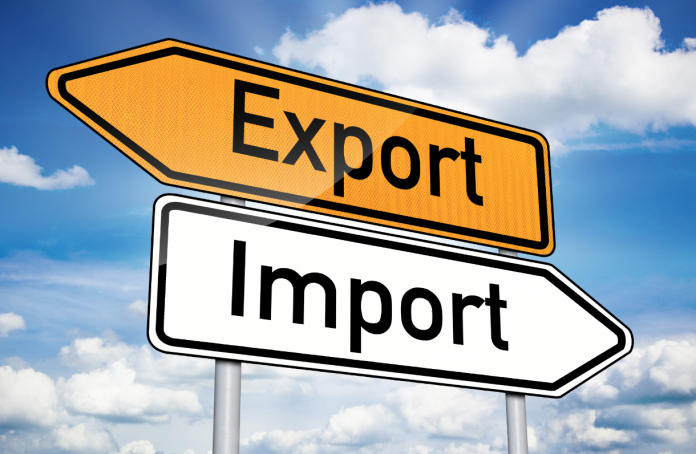–MoC to issue amended ‘import policy’ soon
ISLAMABAD: In a drive to reduce imports bill, the government has not only imposed a heavy regulatory duty on 731 items, it has also instructed authorities concerned to strictly implement rules at ports to discourage imports. The fresh initiatives, according to sources, are almost Non-Tariff Barriers (NTBs) along with the tariff barriers introduced through imposing maximum duties.
During various meetings recently held at the Ministry of Commerce for “Rationalisation of Imports” the officials of Pakistan Standard Quality Control Authority (PSQCA) of Ministry of Science and Technology, Plant Protection Department of Ministry of Food Security and Research and others were asked to strictly follow the quality, standards rules at ports to reduce the import of various products especially food items.
As various registered items at PSQCA, have been cleared by the authority’s officials at ports without proper inspection, the fresh move may halt imports of many items. According to a recently sent letter to the ministry of science and technology by All Pakistan Customs Association, a copy of which is available, PSQCA’s officials/staff deployed at Karachi port issued a certificate for clearance of imported goods after taking kickbacks of Rs 15000 to Rs 20000. “Even computers operators and field staff of PSQCA collect bribe of Rs 1500 to Rs 2000 for processing of applications,” the letter which was sent to State Minister of Science and Technology Dostain Khan said. PSQCA as a third party Conformity Assessment Body carries out inspections at all entry port of Pakistan for mandatory 109 products. These activities are carried out as per Pakistan Conformity Assessment Rules 2011. The rules are harmonised with international standards i.e. ISO/IEC 17065, ISO/IEC 17067 and ISO/IEC 17020.
Officials at the ministry of commerce said that an amended import policy would be issued soon for import regulation. Through the new policy, the import of unnecessary and luxurious goods would be discouraged. According to sources the ministry and FBR were taking various measures for rationalisation of imports and reducing the import bill after direction from Prime Minister House. Besides, the Economic Coordination Committee of the Cabinet (ECC) last week had also imposed an enhanced regulatory duty on around 297 items in a bid to discourage the surge in import bill and slash it down by $ 3 to $ 5 billion during the current fiscal year.
The current account deficit had peaked to $ 12.2 billion during the last fiscal year and it was still on the higher side standing at $ 2.6 billion for the first two months, July and August 2017. In the wake of rising increase in trade deficit and current account deficit, the government was left with no option but to make a last-ditch effort for placing immediate plans to jack up exports and curtail imports in a major way during the remaining months of the current fiscal year.
In the budget 2017-18, the government imposed RD on 565 non-essential items by various rates ranging from 5 per cent to 15 per cent, but this RD did not help reduce imports of non-essential items. The trade balance remained negative and stood at $ 6.29 billion for the first two months, July and August 2017.
MoC working on three-pronged strategy to improve exports, reduce imports
Meanwhile, Ministry of Commerce on Thursday has claimed that it is working on a three-pronged strategy to enhance exports and reduce imports. As the first strategy, the MoC has facilitated the issuance of regulatory duties on imports of luxury and non-essential finished goods by FBR on Monday.
According to officials, MoC is implementing the second component of the Trade Rationalisation strategy that was approved by ECC on October 6, 2017, by issuing the SRO on PM’s Export Enhancement Initiative, improving upon the terms of the earlier scheme.
The main part of the trade strategy proposed by the Commerce Division was to improve the conditions of PM’s Export Enhancement Package which was modified in consultation with the exporters and the relevant ministries. The earlier package provided for conditional duty drawback scheme which would only allow such facility to exporters who export 10 per cent more than the previous year. This made the competitive marketing difficult for the exporters, as any performance less than that would make the facility inaccessible. The exporters were demanding a continuation of previous year’s package which gave duty drawback facility regardless of the increase in exports.
The new version of the package provides a hybrid scheme which provides 50 per cent of the duty drawback to all the exports of the eligible sectors regardless of the enhancement and 50 per cent only on 10 per cent enhancement.
The SRO binds the State Bank of Pakistan (SBP) to clear the claims submitted by exporters’ Bank within 48 hours. The banks on their part will not take more than 15 days to verify and submit the claims to SBP and will credit exporter’s account within 24 hours of the release of funds by SBP.
In order to encourage exporters to target new and far-flung destinations for exports, the package provides 2 per cent additional duty drawback facility for exports to non-traditional destinations in Africa, South America, Oceana, CIS countries and Non-EU countries.
The third component i.e. import regulations will be covered by the issuance of amended Import Policy Order by the Ministry of Commerce which is also expected to be issued this week.




